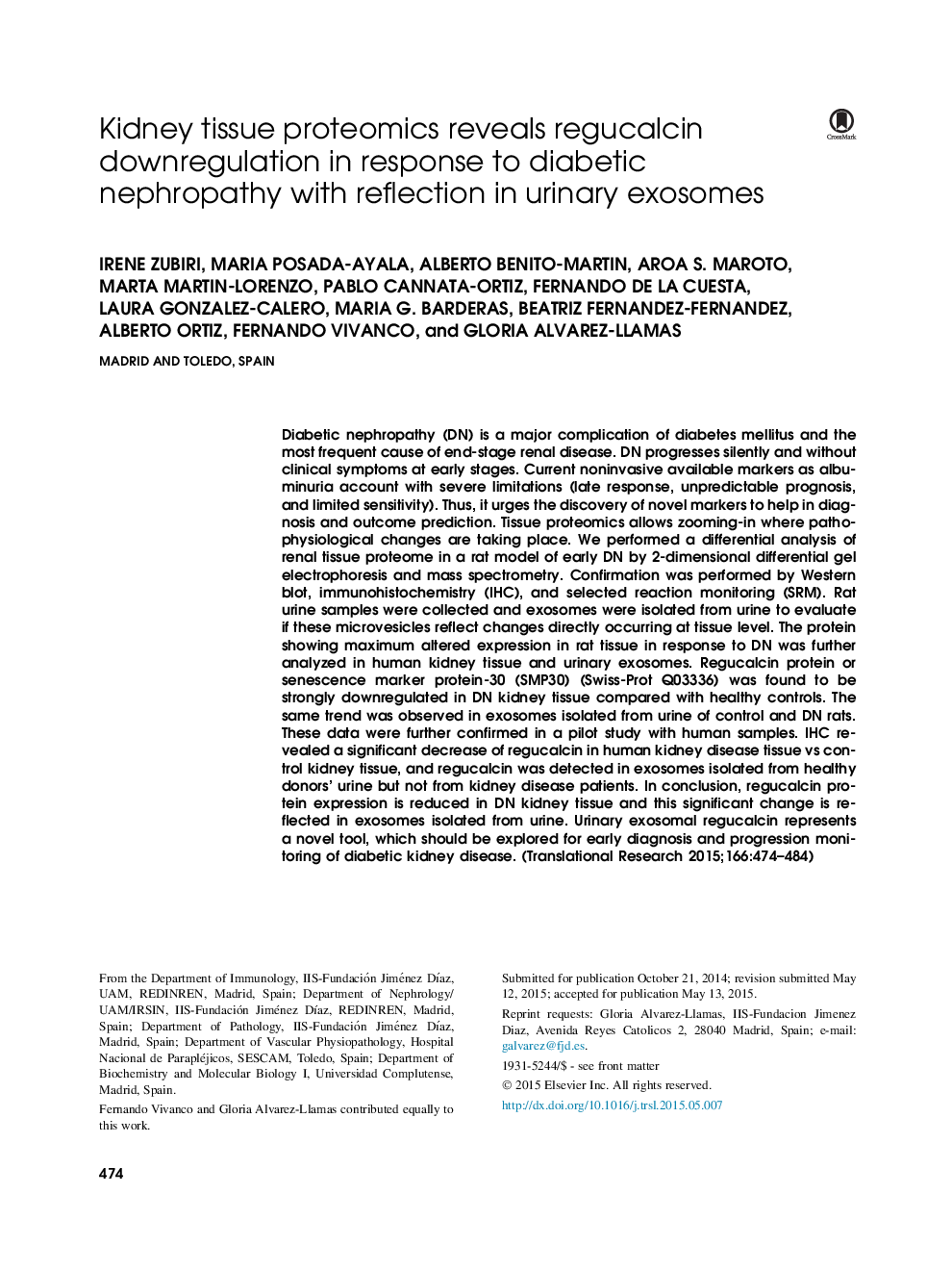| Article ID | Journal | Published Year | Pages | File Type |
|---|---|---|---|---|
| 3840309 | Translational Research | 2015 | 15 Pages |
Abstract
Diabetic nephropathy (DN) is a major complication of diabetes mellitus and the most frequent cause of end-stage renal disease. DN progresses silently and without clinical symptoms at early stages. Current noninvasive available markers as albuminuria account with severe limitations (late response, unpredictable prognosis, and limited sensitivity). Thus, it urges the discovery of novel markers to help in diagnosis and outcome prediction. Tissue proteomics allows zooming-in where pathophysiological changes are taking place. We performed a differential analysis of renal tissue proteome in a rat model of early DN by 2-dimensional differential gel electrophoresis and mass spectrometry. Confirmation was performed by Western blot, immunohistochemistry (IHC), and selected reaction monitoring (SRM). Rat urine samples were collected and exosomes were isolated from urine to evaluate if these microvesicles reflect changes directly occurring at tissue level. The protein showing maximum altered expression in rat tissue in response to DN was further analyzed in human kidney tissue and urinary exosomes. Regucalcin protein or senescence marker protein-30 (SMP30) (Swiss-Prot Q03336) was found to be strongly downregulated in DN kidney tissue compared with healthy controls. The same trend was observed in exosomes isolated from urine of control and DN rats. These data were further confirmed in a pilot study with human samples. IHC revealed a significant decrease of regucalcin in human kidney disease tissue vs control kidney tissue, and regucalcin was detected in exosomes isolated from healthy donors' urine but not from kidney disease patients. In conclusion, regucalcin protein expression is reduced in DN kidney tissue and this significant change is reflected in exosomes isolated from urine. Urinary exosomal regucalcin represents a novel tool, which should be explored for early diagnosis and progression monitoring of diabetic kidney disease.
Keywords
PBSSRMGFRFDRTOFSTZ2D-DIGEstreptozotocinImmunohistochemistryIHCchronic kidney diseasetime of flightMass spectrometrymatrix assisted laser desorption ionizationMALDIPhosphate-buffered salinefalse discovery rateCKDGlomerular filtration rateselected reaction monitoringDiabetic nephropathyWestern blotCHAPS
Related Topics
Health Sciences
Medicine and Dentistry
Medicine and Dentistry (General)
Authors
Irene Zubiri, Maria Posada-Ayala, Alberto Benito-Martin, Aroa S. Maroto, Marta Martin-Lorenzo, Pablo Cannata-Ortiz, Fernando de la Cuesta, Laura Gonzalez-Calero, Maria G. Barderas, Beatriz Fernandez-Fernandez, Alberto Ortiz, Fernando Vivanco,
